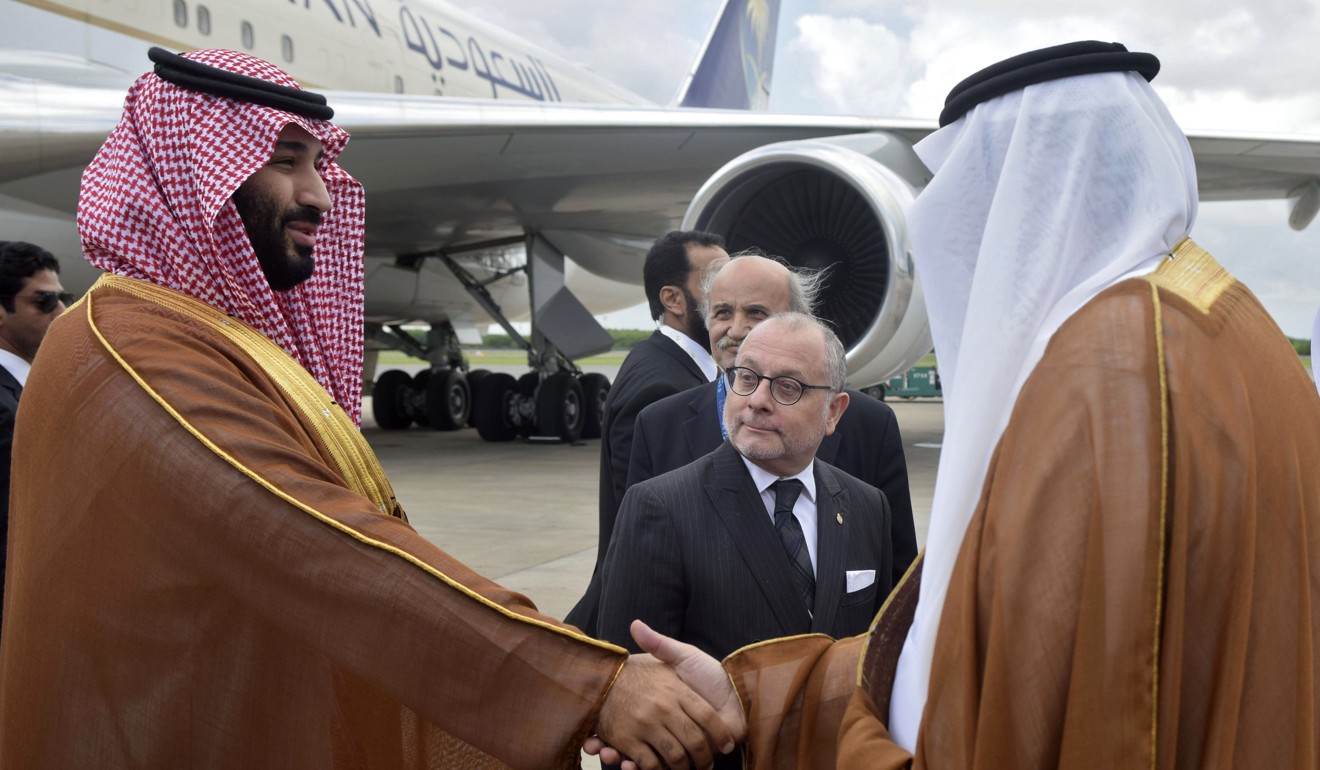
Things could get awkward for the Saudi crown prince at the G20 Summit in Argentina
- But some officials in the prince’s entourage are bracing for a frosty reception at the G20 summit.
- Human Rights Watch urged Argentine prosecutors to consider bringing criminal charges against Prince Mohammed over alleged war crimes in a brutal Saudi-led war in Yemen and his possible complicity in Khashoggi’s murder
Argentina’s brutal dictatorship had at least one useful legacy: a remarkably broad human rights agenda baked into the country’s post-dictatorship constitution.
Argentine law makes it unusually easy to bring international human rights cases, even if they’re unrelated to Argentina, where a military regime killed or disappeared some 30,000 people between 1976 and 1983.
Under the law’s broad interpretation of universal jurisdiction, there are some crimes so heinous that they are considered an affront to humanity and should be subject to prosecution.
It could make for some awkwardness at this week’s Group of 20 summit in Buenos Aires, which Saudi Crown Prince Mohammed bin Salman was expected to attend.
An Argentinian prosecutor was looking into whether Salman should be charged with war crimes.
The potential charges stem from Saudi Arabia’s military campaign in Yemen, where thousands have died and millions more face famine and disease.

Several intelligence agencies and experts, including the CIA, say the crown prince probably orchestrated the killing.
The case against the prince is being pushed by Human Rights Watch, which said it has documented 90 “apparently unlawful coalition air strikes” in Yemen that “hit homes, markets, hospitals, schools and mosques”.
In its petition, the organisation argued that Mohammed, widely known as MBS, was ultimately responsible for several international-law violations because Saudi troops had conducted “indiscriminate and disproportionate” attacks on civilians.
Officials said the investigation was in its early stages, and experts doubt that it would gain much traction.
And even if Argentina pushes forward, the prince would probably be protected by diplomatic immunity.
But even the possibility of an accusation could shake up the G20 summit, expected to start Friday. The Saudi crown prince is expected to be there, along with leaders from China, Russia, the United States, Turkey and Europe.
Tunisians protest against Saudi crown prince’s visit after Khashoggi killing
As The New York Times put it: “Even a small risk of a messy dispute in the Argentine courts could overshadow a trip previously seen as a chance for Prince Mohammed to show he remained welcome among world leaders even after the conclusion of American intelligence agencies that he had authorised the killing of Mr Khashoggi”.
As The Guardian put it, the Saudi prince’s presence “offers leaders a photo op to dread”.
One member of the group – the United States – has offered unwavering support of the prince.
In an unusual statement, US President Donald Trump appeared to contradict his own intelligence agencies (and the desires of members of his party in Congress) on Khashoggi’s killing and claimed that Saudi Arabia was too important a trading partner to lose.
Here’s Donald Trump’s full statement about Jamal Khashoggi’s killing: it’s 636 words with eight exclamation marks
A Kremlin aide said Wednesday that Russian President Vladimir Putin would discuss Khashoggi with Prince Mohammed in Buenos Aires, but the main aim of their meeting would be to talk about the “development” of Russian-Saudi relations.
In October, Putin said that there was not enough evidence that Riyadh was behind Khashoggi’s disappearance and that the US bore a “certain responsibility” for his fate.
While France and Britain have maintained their arms deals with Saudi Arabia, neither has offered the kind of support Trump has provided.
Additionally, Britain has been campaigning in the United Nations for a humanitarian ceasefire and the resumption of food and medical supplies to Yemen.
Others have taken a more aggressive stance. Turkey has rigorously investigated the Khashoggi slaying, and Turkish President Recep Tayyip Erdogan has repeatedly claimed that the journalist’s killing was premeditated and ordered by top officials, though he has declined to name the crown prince specifically.
Germany has halted arms sales to Saudi Arabia in response to the killing and urged others to do the same. Canada has said it will no longer sign arms deals with the country, though it has not walked back its existing arrangements.
“I imagine MBS will be greeted warmly by the authoritarian leaders in Buenos Aires and by Trump,” Nicholas Burns, a former US undersecretary of state for political affairs, told The Guardian.
“It will be up to Merkel, Macron, May and Trudeau to be the champions of democracy, human rights and the rule of law, and to avoid embracing him.”
Additional reporting by Agence France-Presse

